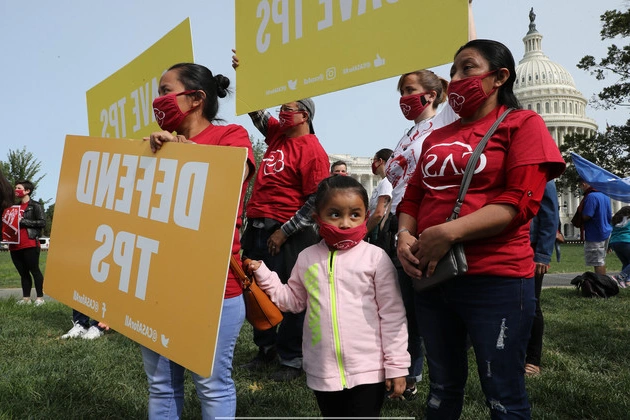
Legal Immigrants in Healthcare: The Backbone of Patient Care
The Trump administration’s actions targeting legal immigrants have raised concerns in the healthcare sector. More than half a million legal immigrants face the risk of deportation, posing a threat to the stability of patient care, especially in long-term care facilities.
Providers and patients alike are apprehensive about losing essential healthcare workers, including nurses, physical therapists, and support staff. The impact of these potential deportations extends beyond individual facilities, with warnings of decreased care capacity and increased risks of communicable diseases.
The Fragility of the Immigration System in Healthcare
The vulnerability of the nation’s healthcare system lies in its heavy reliance on immigrants, both documented and undocumented. The imminent loss of these workers highlights the inadequacies of the current immigration framework, which lacks permanent solutions and leaves millions at the mercy of changing administrations.
Congress’ failure to enact lasting reforms has exacerbated the situation, leading to dependence on temporary programs that can be terminated abruptly, causing disruptions in care provision.
Challenges and Solutions in Healthcare Workforce
The impending deportations of legal immigrants will exacerbate existing shortages in the healthcare workforce. This shortage is particularly critical in long-term care for the elderly and individuals with disabilities, where immigrants play a significant role.
Providers across the country, from nursing homes to hospice programs, are grappling with the potential loss of essential staff members. The looming crisis has prompted calls for increased visa allocations to address the gaps in the healthcare workforce.
Amidst these challenges, the quality of care is at risk of decline due to staff shortages and increased burdens on remaining healthcare workers. The consequences of these actions extend beyond individual facilities, impacting the broader economy and healthcare access for aging Americans.
Public Health Implications and Concerns
The Trump administration’s policies have triggered public health concerns, particularly in immigrant communities. The fear of enforcement actions in healthcare settings has deterred individuals from seeking essential services, including testing and treatment for infectious diseases.
These barriers to care, coupled with cuts to public health funding and insurance programs for undocumented immigrants, pose serious challenges in combating infectious diseases like tuberculosis. The resurgence of diseases once nearly eradicated underscores the need for inclusive and accessible healthcare services.
Building Resilience in Healthcare Access
To address the disparities in healthcare access exacerbated by immigration policies, public health departments are innovating to reach marginalized populations. Initiatives such as telehealth services, mobile clinics, and community outreach are vital in ensuring equitable care delivery.
By empowering healthcare providers and patients with information on their rights and resources, communities can overcome the barriers created by restrictive policies. Collaboration between governmental and non-governmental organizations is crucial in promoting health equity and combating public health threats.
Conclusion: Upholding Healthcare Amidst Challenges
The healthcare sector faces significant challenges due to the Trump administration’s policies targeting legal immigrants. The impending deportations and restrictions on healthcare access threaten the stability of patient care, workforce resilience, and public health outcomes.
Addressing these challenges requires a comprehensive approach that prioritizes inclusivity, equity, and collaboration across healthcare stakeholders. By advocating for policies that support a diverse and resilient healthcare workforce, we can safeguard the well-being of individuals, communities, and the broader healthcare system.











